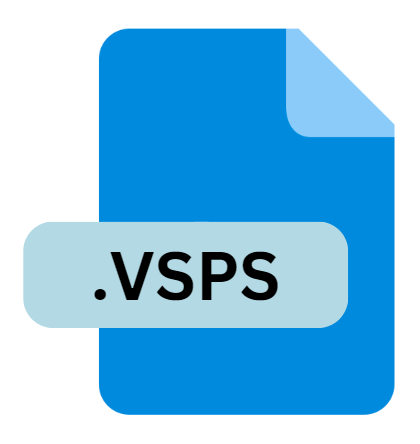.VSPS File Extension

Visual Studio Serialized Performance Report
| Developer | Microsoft |
| Popularity | |
| Category | Developer Files |
| Format | .VSPS |
| Cross Platform | Update Soon |
What is an VSPS file?
Visual Studio Serialized Performance Reports (.VSPS files) serve as a means to capture and analyze the performance metrics of software applications developed within the Visual Studio environment.
These files encapsulate vital information regarding the execution of code, resource utilization, and other performance-related insights.
They enable developers to pinpoint bottlenecks, identify areas for optimization, and ultimately enhance the overall performance of their applications.
More Information.
The inception of Visual Studio Serialized Performance Reports can be traced back to the evolving demands of software development.
As applications grew in complexity and scale, so did the need for robust performance analysis tools. Microsoft recognized this necessity and introduced built-in profiling capabilities within Visual Studio.
The .VSPS files emerged as a standardized format for storing and sharing performance data, facilitating collaboration among developers and enabling systematic performance optimization efforts.
Origin Of This File.
The .VSPS file extension is inherently linked to Microsoft’s Visual Studio IDE. It emerges as a byproduct of the performance profiling tools integrated within Visual Studio. These tools allow developers to conduct detailed performance analysis of their code during runtime.
The resulting data is serialized into a .VSPS file, providing a comprehensive snapshot of the application’s performance characteristics.
File Structure Technical Specification.
.VSPS file is a serialized representation of performance profiling data. It comprises a structured format that organizes various performance metrics into a coherent dataset.
The precise structure and technical specifications of .VSPS files are intricately tied to the profiling tools and methodologies employed within Visual Studio.
Typically, a .VSPS file contains sections dedicated to different aspects of performance analysis, such as CPU utilization, memory usage, function call traces, and more.
These sections may include timestamps, statistical data, and contextual information to aid in interpretation and analysis.
Additionally, .VSPS files may incorporate metadata detailing the environment in which the profiling was conducted, including hardware specifications, operating system details, and compiler settings.
How to Convert the File?
Converting .VSPS files to other formats or platforms may be necessary to address compatibility issues or to facilitate collaboration with non-Windows environments. Several approaches can be employed for file conversion:
- Third-Party Tools: Various third-party software solutions offer conversion utilities designed to transform .VSPS files into alternative formats compatible with different operating systems or analysis tools.
- Custom Scripts: Developers can write custom scripts or utilities to parse and extract data from .VSPS files, converting them into formats such as CSV (Comma-Separated Values) or JSON (JavaScript Object Notation) for broader compatibility.
- Visual Studio Extensions: Certain extensions or plugins for Visual Studio may provide functionality for exporting .VSPS data in alternative formats, simplifying the conversion process within the familiar IDE environment.
Advantages And Disadvantages.
Advantages:
- Comprehensive Performance Insights: .VSPS files provide a detailed breakdown of an application’s performance characteristics, enabling developers to identify performance bottlenecks with precision.
- Integration with Visual Studio: Seamless integration with the Visual Studio IDE streamlines the performance analysis workflow, allowing developers to switch between coding and profiling tasks effortlessly.
- Standardized Format: The .VSPS format serves as a standardized means of sharing and exchanging performance data, facilitating collaboration and knowledge sharing within development teams.
Disadvantagees:
- Platform Dependency: As a product of Visual Studio, .VSPS files are inherently tied to the Windows operating system and may not be directly compatible with other platforms without appropriate tools or conversion methods.
- Tooling Requirements: Effective analysis of .VSPS files necessitate familiarity with Visual Studio’s profiling tools and methodologies, which may require additional training or expertise.
How to Open VSPS?
Open In Windows
- Visual Studio: .VSPS files are native to Visual Studio, so you can simply double-click the file to open it in Visual Studio on a Windows system.
- Visual Studio Profiler: Launch Visual Studio and use the built-in profiling tools to open and analyze .VSPS files for performance evaluation and optimization.
Open In Linux
- MonoDevelop: MonoDevelop is an open-source IDE that supports .VSPS files on Linux. You can open .VSPS files in MonoDevelop for performance analysis.
- CrossOver: CrossOver is a compatibility layer that allows running Windows applications on Linux. Install Visual Studio or Visual Studio Profiler using CrossOver to open .VSPS files.
Open In MAC
- Visual Studio for Mac: Microsoft offers Visual Studio for Mac, which supports .VSPS files. Install Visual Studio for Mac and open .VSPS files for performance profiling and analysis.
- CrossOver: Similar to Linux, you can use CrossOver on macOS to run Visual Studio or Visual Studio Profiler and open .VSPS files.













